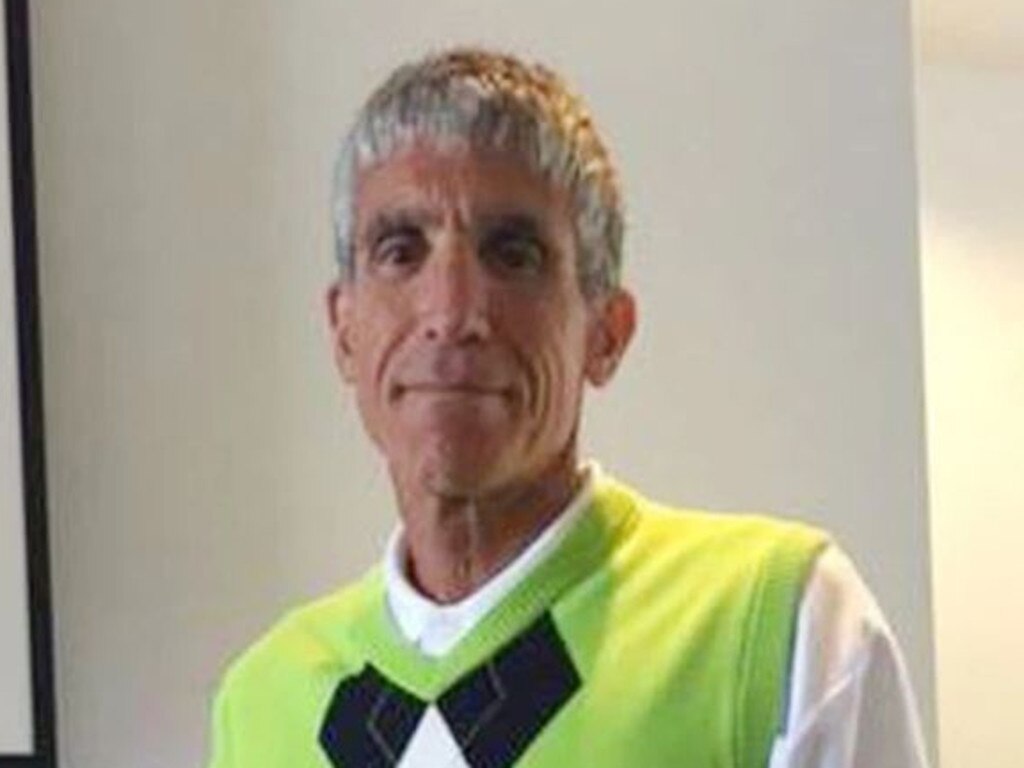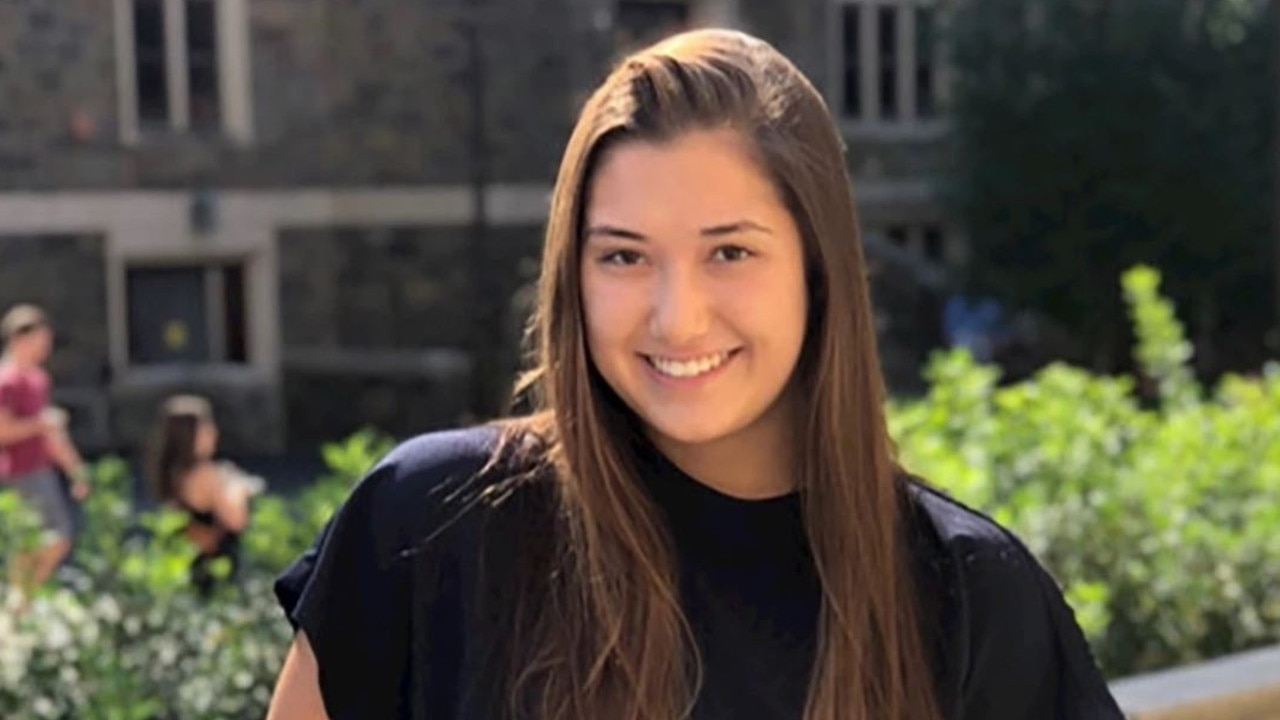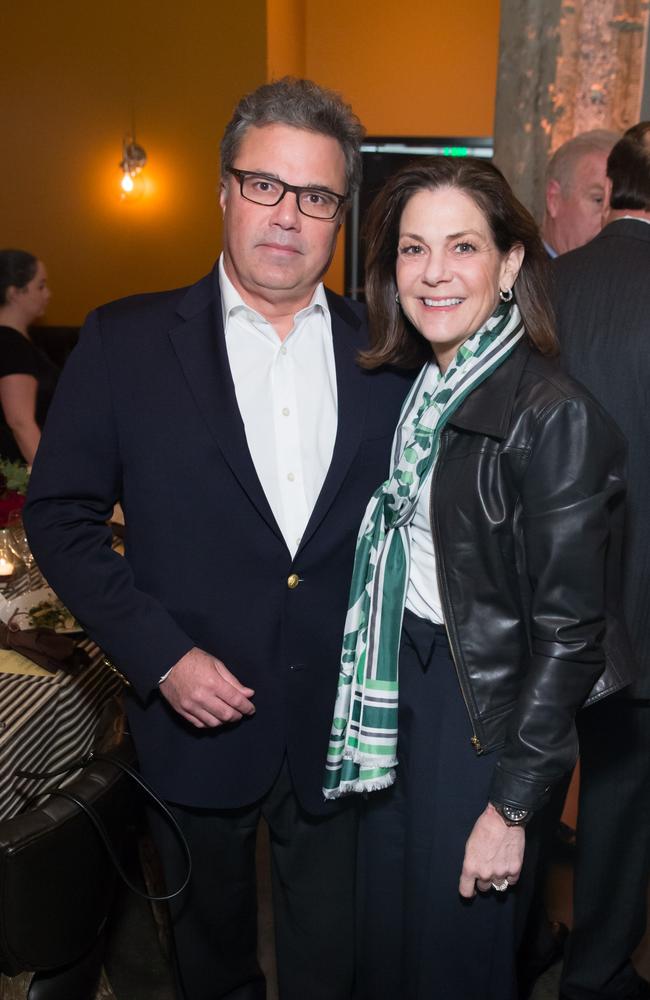How the college entrance scam unfolded — and why it had such a massive impact
As if life couldn’t get any worse for Lori Loughlin’s daughters, they’ve just been dealt a harsh new blow in the college scam fallout.
Forgive the cliche, but damn how the mighty have fallen.
The past week has been a horrific one for some of America’s most elite corporate executives, lawyers and Hollywood celebrities, after they were indicted in a massive FBI crackdown on college entrance scams.
Full House actress Lori Loughlin has fallen from the endearing “Aunt Becky” to ill-repute and a potential prison cell.
Her two daughters have been forced to drop out of their elite school. The younger daughter, 19-year-old Olivia Jade Giannulli, is rapidly losing a massive social media empire of over three million followers.
And in case all that wasn’t enough, the two girls have just been dealt a harsh new blow in the fallout.
The University of Southern California — the elite college Loughlin and her husband Mossimo Giannulli allegedly scammed their girls into — has now blocked them from registering for classes or getting their transcripts, effectively making whatever time they did spend in classes a total waste.
In a statement posted on Twitter yesterday, the school said the girls — as well as any other students who may have been linked to the scam — will have their status under review.
“USC has placed holds on the accounts of students who may be associated with the alleged admissions scheme; this prevents the students from registering for classes or acquiring transcripts while their cases are under review,” the school posted yesterday.
Updated information on the College Admissions Issue:
— USC (@USC) March 19, 2019
• USC has placed holds on the accounts of students who may be associated with the alleged admissions scheme; this prevents the students from registering for classes or acquiring transcripts while their cases are under review
The university did not disclose the number of students implicated in the investigation.
It’s just the latest blow for the wealthy Hollywood family, who — among other actors, executives and high-earning doctors and lawyers — are now being globally condemned over the scandal.
Desperate Housewives star Felicity Huffman has also been arrested, with reports FBI agents with guns rocked up to her home at 6am to take her into custody.
Elsewhere, Isabelle Henriquez, the daughter of a wealthy now-ex-CEO, may lose her degree and face further consequences following allegations she “gloated” about cheating her way into the prestigious Georgetown University.
It’s long been said that meritocracies are — at least in part — an illusion; but never has this illusion been so sensationally exposed.
But there’s another big question worth pondering: why exactly has it had such a massive impact on the public?
SCANDAL THAT’S ENGULFED AMERICA’S ELITE
Let's start with a quick catch-up on the past week.
A bunch of super rich people across the United States were caught out in a massive cheating scam to get their kids into elite private colleges.
Dozens of actors, CEOs, doctors and lawyers allegedly enlisted the help of a dodgy college preparatory program to come up with creative methods of getting their privileged-but-evidently-not-that-clever children an elite tertiary education.
Up to 50 people have been arrested following an FBI investigation called “Operation Varsity Blues”.
At the heart of the scam sits a Californian man named William Rick Singer.
The 59-year-old was indicted on charges of running an elaborate scheme to deceive and bribe university admissions officers, in order to get undeserving kids into the college of their choice.
Provided their parents were willing to work out a hefty wad of cash, anyway.
In some instances, parents allegedly paid Singer as much as $US6 million ($A8.5 million) to get their kids into a good school.

This wasn’t something Singer abruptly fell into. The man has made a career out of helping high school kids get into university.
He appears to have started by helping students in Sacramento, the capital city of California.
In a 1994 interview with The Sacramento Bee, he said he filled a void left by overworked high school advisers.
“It’s not that school counsellors don’t want to help. It’s just that they often don’t have the time,” he said at the time. According to the news outlet, he’d been running a business called Future Stars at the time, which he later sold.
Earlier this week, a consultant at a rival college-prep company told The Bee while she wasn’t aware of Singer paying bribes, she knew there were “unsavoury things going on”, like inflating students’ resumes with fake extra-curricular activities.
“He would always say, ‘I can get you into these schools’. That was his line. As a reputable consultant, you never say that,” the unnamed consultant said.
Singer was charged with running and racketeering the scheme through his Edge College & Career Network, which was his active college counselling business. A total of 33 parents and 13 coaches and associates were also charged.
SNEAKY SCAMS USED BY DODGY PREP COMPANY
Getting into a prestigious college in America takes a lot more than just decent grades.
Consistently high marks, taking challenging classes, high SAT scores, an excellent college admissions essay, a proven host of extra-curricular activities and even evidence of a “personal brand” all contribute to one’s chances of bagging a coveted spot at an elite school like Harvard or Yale.
Or, failing that, just slip a dodgy college preparatory expert a few million bucks and ask him to work some magic.
Singer allegedly employed a number of deceptive tactics and techniques to get his clients’ children into elite universities.
According to prosecutors, his schemes included getting fake “proctors” to take the university admission tests on behalf of his clients; staging fake photoshoots of them taking part in extra-curricular activities; editing clients’ faces onto stock photos of athletes to snag them coveted sports scholarships; bribing coaches with the power to fast-track clients; and boasting a slew of made-up achievements.
First, let’s look at the Giannulli girls.
According to court documents, Singer staged a photo of the elder daughter, Isabella, on an ergometer and claimed she was a skilled coxswain. However, it was noted the girl “did not row competitively or otherwise participate in crew”.
Isabella was eventually accepted to the elite University of Southern California.

According to the complaint, the Giannullis allegedly wired Singer’s company — The Key Worldwide Foundation — a handsome $US200,000 as a “purported donation”. Federal prosecutors claim this was actually an additional payment for a job well done.
Inspired by her “success”, it’s alleged they then tried the same on Olivia.
The documents noted a “crew profile” was arranged in which Olivia posed in action shots, including a “photograph of her on an ergometer”.
In both cases, it was claimed their daughters were coxswains and they were made to pose on rowing machines.
Loughlin and Giannulli agreed to “pay bribes totalling $US500,000 ($AU705,800) in exchange for having their two daughters designated as recruits to the USC crew team — despite the fact that they did not participate in crew — thereby facilitating their admission to USC”.

It’s important to note that many of the children who benefited from their parents’ alleged fraud were said to be unaware of exactly what their parents were doing.
Based solely off the information in the court documents, you could argue that Isabella and Olivia have had their lives ruined by their parents’ dodgy actions, as there appears to be no proof they knew exactly what misdeeds were being committed on their behalf.
But the case of the Henriquez family is another story.
CEO’S DAUGHTER ‘GLOATED’ ABOUT CHEATING
Isabelle Henriquez, the daughter of Hercules Technology Growth Capital CEO Manuel Henriquez and his wife Elizabeth, is alleged to have “gloated” about cheating on her final exams, after her parents paid more than $US1 million to get her into Georgetown University.
It’s alleged in the 204-page complaint the family paid at least $US425,000 ($A599,000) to Singer.
According to the complaint, Isabelle’s parents paid $US25,000 ($A35,240) to arrange for a “proctor” to sit “side-by-side” with her and inconspicuously correct her answers during her SATs.
“After the exam, he ‘gloated’ with Elizabeth Henriquez and her daughter about the fact that they had cheated and gotten away with it,” the documents read.

Isabelle received a score of 1900 out of 2400 — “an improvement of 320 points over the best score she had previously achieved taking the test legitimately”. But it was still potentially too low to get into Georgetown without a bit of extra help.
This is where Singer stepped in again. It’s alleged the Henriquezes conspired with him to bribe Gordon Ernst, the head tennis coach at Georgetown, a hefty $US950,000 ($A1.34 million) into designating Isabelle a tennis recruit.
Bear in mind, Isabelle had never once participated in a tennis tournament throughout her high school career.
“I have been really successful this summer playing tennis around the country,” Isabelle allegedly wrote in a letter to Ernst. “I am looking forward to having a chance to be part of the Georgetown tennis team and make a positive contribution to your team’s success.”
She rewrote her college application essay with a focus on tennis, claiming she spent “three to four hours a day grinding out on and off-court workouts with the hopes of becoming successful enough to play college tennis especially at Georgetown”.
Her application also allegedly claimed she played “club tennis” for 20 hours per week, was on the US Tennis Association’s All-Academic team and was in the top 50 high school students on the USTA junior girls’ tennis rankings for three years.
“In fact, records obtained from the USTA do not show that she played at any USTA tournaments in high school,” prosecutors wrote in the complaint.
“At her best, she appears to have ranked 207th in Northern California in the under-12 girls division, with an overall win/loss record of 2-8.”

Less than two weeks after submitting her application, Isabelle received a letter from the college informing her it had reviewed her application at the tennis coach’s request and her admission was “likely”. She would ultimately be accepted as a student.
At Georgetown, Isabelle majored in Spanish and worked as a tutor at Hoya Helpers, a program where Georgetown students teach local public schoolchildren.
According to The Daily Beast, she penned a blog entry for a sociology class in which she described herself as “very independent and not dependent on others when I need things”.
“I also find that I have a good moral compass,” she reportedly wrote.
The entry has since been removed.
THE FALLOUT FROM THE INVESTIGATION
None of the 50 people charged have spoken out, but the consequences of their alleged actions are already front and centre.
Loughlin currently faces felony conspiracy to commit mail fraud and honest services mail fraud. She and her husband Mossimo Giannulli have been released on a $US1 million bond, and Loughlin will also have her passport surrendered in December.
Last week TMZ reported Isabella and Olivia Giannulli were intending to drop out of USC due to fears of being bullied over the scam.
One source told the gossip website the girls worried they’ll be “viciously bullied” if they returned to school.
Judging by Olivia’s social media channels, that’s a fair assumption, with posts on the girl’s Instagram page dating all the way back to 2013 flooded with negative comments about her parents’ alleged misdeeds.
“You and your family are total trash. You stole a spot at USC that could have gone to an underprivileged student. Total garbage you are,” reads a comment on her very first post.
“Mommy had to bribe a college to get them to accept you. Please stop trying to floss from here on out,” says another.
“Stuff like this makes me sick to my stomach because there’s someone out there who didn’t get in because of her,” another user wrote.
It didn’t help that Olivia profited from the scam. Last year, she posted a sponsored ad for Amazon to her Instagram channel about her new student life, which has since attracted a flood of negative feedback.

Companies have sought to distance themselves from Olivia and her mother. Technology giant Hewlett Packard has removed an ad featuring the pair, while cosmetic giant Sephora has announced the company will be ending a partnership with Olivia.
“After careful review of recent developments, we have made the decision to end the Sephora Collection partnership with Olivia Jade, effective immediately,” a statement from the company said.
On Friday, USC spokesman Gary Polakovic said all USC applicants connected to the cheating scheme will be denied entry, as a case-by-case review gets under way.
USC will “make informed, appropriate decisions once those reviews have been completed. Some of these individuals may have been minors at the time of their application process,” CNN reported him saying.
It is expected that other officials at elite universities like Yale, Stanford and Georgetown — where Isabelle Henriquez studied — will examine criminal claims made against their staffers, as a number of coaches from the elite universities are implicated in the case.
Hercules Capital announced Isabelle’s father had “voluntarily stepped aside” as CEO in the wake of the scandal, according to Nasdaq.
Jack Buckingham, the son of marketing executive Jane Buckingham — who has also been charged in the scandal — has gone against legal advice to speak out about the case.
In an interview with The Hollywood Reporter, he apologised and revealed he had been advised to stay quiet about the scheme.
“I know there are millions of kids out there both wealthy and less fortunate who grind their ass off just to have a shot at the college of their dreams,” he said.
Jack also said he didn’t know his mother allegedly paid $US50,000 to have someone take the college entrance exam on his behalf.
"I am sorry," says son of accused college cheater Jane Buckingham https://t.co/OOfHmjoADD pic.twitter.com/vNGEK2YzJQ
— Hollywood Reporter (@THR) March 14, 2019
His mother, the founder of LA-based trend forecasting and brand strategy firm Trendera, has been charged with paying someone to take the exam for her son, and arranging the same service for her daughter Lilia.
She was quoted as saying she wanted someone to take the ACT for Lilia because she is “not a great test taker” and agreed to send a handwriting sample for her son.
Unlike Isabelle, Jack has not been charged in the FBI investigation.
There are also various reports of students taking legal action against colleges named in the scandal.
According to The Guardian, two Stanford University students have filed claims that they were denied a fair opportunity to apply for college.
“Each of the universities took the students’ admission application fees while failing to take adequate steps to ensure that their admissions process was fair and free of fraud, bribery, cheating and dishonesty,” the lawsuit reads in part.
In a similar case, straight-A student Lauren Fidelak — who was rejected from UCLA — has filed a federal lawsuit saying her admission process was “warped and rigged by fraud”, according to CNN.
And what about Singer, the alleged mastermind in all this? The 59-year-old pleaded guilty on Tuesday to racketeering conspiracy, money laundering conspiracy, conspiracy to defraud the United States and obstruction of justice, prosecutors said.
WHY THIS SCANDAL STRUCK SUCH A CHORD
News of the college entrance scam has reverberated around the world.
A chunk of this, of course, lies in the interest in celebrity culture and the downfall of the world’s most privileged and powerful.
But it’s also a topic that also hits home for many.
Here in Australia, we may be isolated from schools like Harvard and Yale, but any current or former Year 12 student who sought a university education could relate to what’s gone down.
You studied your arse off in your adolescence. You spent night after night cramming for exams and perfecting assignments. You sought a high ATAR in order to bag yourself a coveted university course spot, earning yourself tens of thousands of dollars in HECS debt as a result. And hey presto — here’s a bunch of elite kids who’ve barely had to open a textbook in order to steal that limited spot from a hardworking individual like yourself.
Social media users have been using the scam to highlight their own struggles with gaining entry to university — elite or otherwise.
A number of other Hollywood celebrities have also weighed in:
thank u mother for not caring enough to get me into college
— christine teigen (@chrissyteigen) March 13, 2019
all the people involved in this college scam should have gathered their money and started a small elite college where Lori Loughlin teaches a class on smiling
— Lena Dunham (@lenadunham) March 12, 2019
And let me say: I’m incredibly grateful that I had the privilege and opportunity to have a tutor and to afford practice test programs. A lot of kids don’t. And to think of them losing their chance at their dream school to someone undeserving is really, really gross.
— John Owen Lowe (@Johnny_L0we) March 12, 2019
But aside from that, the scandal is also hugely relevant within the context of America’s political climate right now.
In July last year, President Donald Trump announced he would roll back the Obama-era policies of affirmative action.
The former Democratic president’s policy emphasised that there were legal avenues for colleges to consider “positive discrimination” as a way to address the gap between the number of white and non-white students enrolling at “elite colleges”.
Mr Trump, some analysts argue, has conversely encouraged his base of white voters to believe the system is “rigged” against them.
In an opinion piece earlier this month, Washington Post writer Paul Waldman detailed this political tactic, stating: “When Trump told them that the system was ‘rigged’ against them, he wasn’t talking about wealth and power. He was talking about white people supposedly being held back, by immigrants and undeserving black people who had been pushed ahead of them to the front of the line.”
It’s a sentiment that’s been well-noted on social media in the wake of the college scam:
BREAKING NEWS: ENTRANCE INTO COLLEGE UNJUST, TILTED IN FAVOR OF WHITE KIDS WITH RICH PARENTS.
— Full Frontal (@FullFrontalSamB) March 12, 2019
Hey Guys: Remember when some alleged that affirmative action was the biggest threat to the integrity of the college admissions process.
— Erica L. Green (@EricaLG) March 12, 2019
Perhaps this is a good time to talk about all the perfectly legal ways the wealthy are both allowed and expected to manipulate college-admissions systems while teaching their children to disparage "affirmative action" https://t.co/VSoOwIiKp7
— andi zeisler (@andizeisler) March 12, 2019
This scam obliterates the Trumpian perspective on who the education system really disadvantages, reminding us that wealth, not talent, is ultimately what defines opportunity.
After all, the scam has shone a light on his own family’s admissions into elite schools.
Shortly after the scam went public, Donald Trump Jr was among the social media users mocking Huffman for an old tweet in which she asked people for their “best ‘hacks’ for the back-to-school season’”.
I’m learning some new ones as we speak. Stay tuned. https://t.co/ftJjYtMUxt
— Donald Trump Jr. (@DonaldJTrumpJr) March 12, 2019
Is it just me or is everyone in Hollywood strangely silent today? Come on guys you're always very vocal in forcing your opinions on everyone... What changed?
— Donald Trump Jr. (@DonaldJTrumpJr) March 12, 2019
Many responded reminding the younger Trump that he was accepted into the University of Pennsylvania’s Wharton School shortly after making a generous six-figure donation to it.
Likewise, Mr Trump's son-in-law Jared Kushner was admitted to Harvard after a legal $US2.5 million donation was made by his father, Charles Kushner, to the school.
In 2016, journalist Daniel Golden wrote a story for ProPublica noting that Harvard only accepted one-in-nine applicants. He also interviewed school teachers of Mr Kushner who confirmed he wasn’t nearly a star pupil.
All things considered, the college scam represents the flip-side of affirmative action — that without it, a top-tier education is often for the white and wealthy.
It’s also renewed debate over whether elite colleges should consider an admissions lottery.
Writing in The Conversation, Harvard University Professor Natasha Warikoo argued it would lessen the problem of corruption.
“An admission lottery would send a clear message that admission is significantly based on chance, not just merit,” she said. “It is well established that those who get into elite schools come from wealthier, better-educated families than teens in the US overall. They also tend to more frequently be white or Asian.
“So unless society believes that merit is not evenly distributed across the population, pretending that admissions is meritocratic makes it seem like elite students are more worthy than those who are disadvantaged, when the reality is they just had more advantages.”



